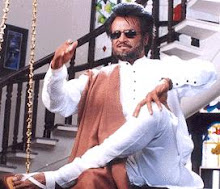Certainty, Remorse and the Death Penalty
filed under
death penalty,
ramblings,
theories of life
By the time you read this, Ram Jethmalani would most likely have walked away with a stay of the execution of three assassins of Rajiv Gandhi. You might not hear of it in the English and Hindi news channels - they're too busy monitoring Anna's health - but the Tamil media is crawling with news, analysis and opinions. Opinion is divided, obviously, for the issue is rather thorny. Is there a case for showing any mercy to three persons convicted of assassinating the Prime Minister and taking the lives of at least fourteen bystanders, even after the President has rejected their clemency petition?
I was reminded, yesterday, of a passage from Dosteovsky's The Idiot (It is a long passage, bear with me):
But here I should imagine the most terrible part of the whole punishment is, not the bodily pain at all—but the certain knowledge that in an hour,—then in ten minutes, then in half a minute, then now—this very instant soul must quit your body and that you will no longer be a man— and that this is certain, CERTAIN! That’s the point—the certainty of it. Just that instant when you place your head on the block and hear the iron grate over your head—then—that quarter of a second is the most awful of all.
‘This is not my own fantastical opinion—many people have thought the same; but I feel it so deeply that I’ll tell you what I think. I believe that to execute a man for murder is to punish him immeasurably more dreadfully than is equivalent to his crime. A murder by sentence is far more dreadful than a murder committed by a criminal. The man who is attacked by robbers at night, in a dark wood, or anywhere, undoubtedly hopes and hopes that he may yet escape until the very moment of his death. There are plenty of instances of a man running away, or imploring for mercy—at all events hoping on in some degree—even after his throat was cut. But in the case of an execution, that last hope—having which it is so immeasurably less dreadful to die,—is taken away from the wretch and CERTAINTY substituted in its place! There is his sentence, and with it that terrible certainty that he cannot possibly escape death—which, I consider, must be the most dreadful anguish in the world. You may place a soldier before a cannon’s mouth in battle, and fire upon him—and he will still hope. But read to that same soldier his death-sentence, and he will either go mad or burst into tears. Who dares to say that any man can suffer this without going mad? No, no! it is an abuse, a shame, it is unnecessary—why should such a thing exist? Doubtless there may be men who have been sentenced, who have suffered this mental anguish for a while and then have been reprieved; perhaps such men may have been able to relate their feelings afterwards. Our Lord Christ spoke of this anguish and dread. No! no! no! No man should be treated so, no man, no man!’
What these three prisoners have faced is far worse. The Supreme Court confirmed their death sentences in 2000 - eleven years ago. They filed a petition for clemency before the President immediately. With no discernible timeline for when the President would consider and pass an order on their application, they have been waking up for eleven years without knowing if they will be alive in the evening. Every book they read, they aren't sure if it will be their last. Every meal they eat, every piece of music they hear, every sunrise they witness, they wonder if they will once more. Surely, this is a far worse punishment than death itself.
These are people willing to die for a cause, yes. They have shown no remorse, yes. They are still considered heroes amongst their ilk. If twenty years of jail and twenty years of uncertainty of existence hasn't reformed them, what will?
But then, our criminal justice system doesn't deal with remorse. Our strongest justification for the death penalty is still retribution. Let me use the cruder term - revenge. Is it possible to feel remorse when an avenger hovers over you, holds you captive and takes painfully long to shut every exit door? We aren't giving our criminals the space to feel remorse.
What of the families of the victims in Sriperumbudur? A friend who did a report on them says they are all struggling to make ends meet, that they are still recovering from the loss. Our criminal justice system has nothing to make them a part of the process; a crime is seen as an offence against the state and not against an individual or a community. The state acts coldly, the state even eliminates the victim from the process, except as witnesses. How can Murugan feel sorry for his actions when he doesn't know what suffering he has caused? Our system doesn't make an offender face up to his wrongs, it only gives him a chance to defend himself against them. Telling a victim that you did nothing wrong is much harder than telling the State that you did nothing wrong.
The 187th Law Commission Report speaks of the death penalty in the most scathing terms, it tells us of everything that is wrong with it. It also deals with this issue - of prisoners on death row, for interminable periods. Our Supreme Court has dealt with cases like this in the past in favour of the offender, but these are quick-fix solutions. Cases where clemency petitions are pending with the President for decades are not unknown.
The first step we need to take is to recognise that revenge cannot and should not justify criminal punishments anymore. The death penalty is heinous, it is violent, it is morally unjustifiable, and it is random. It must go.



